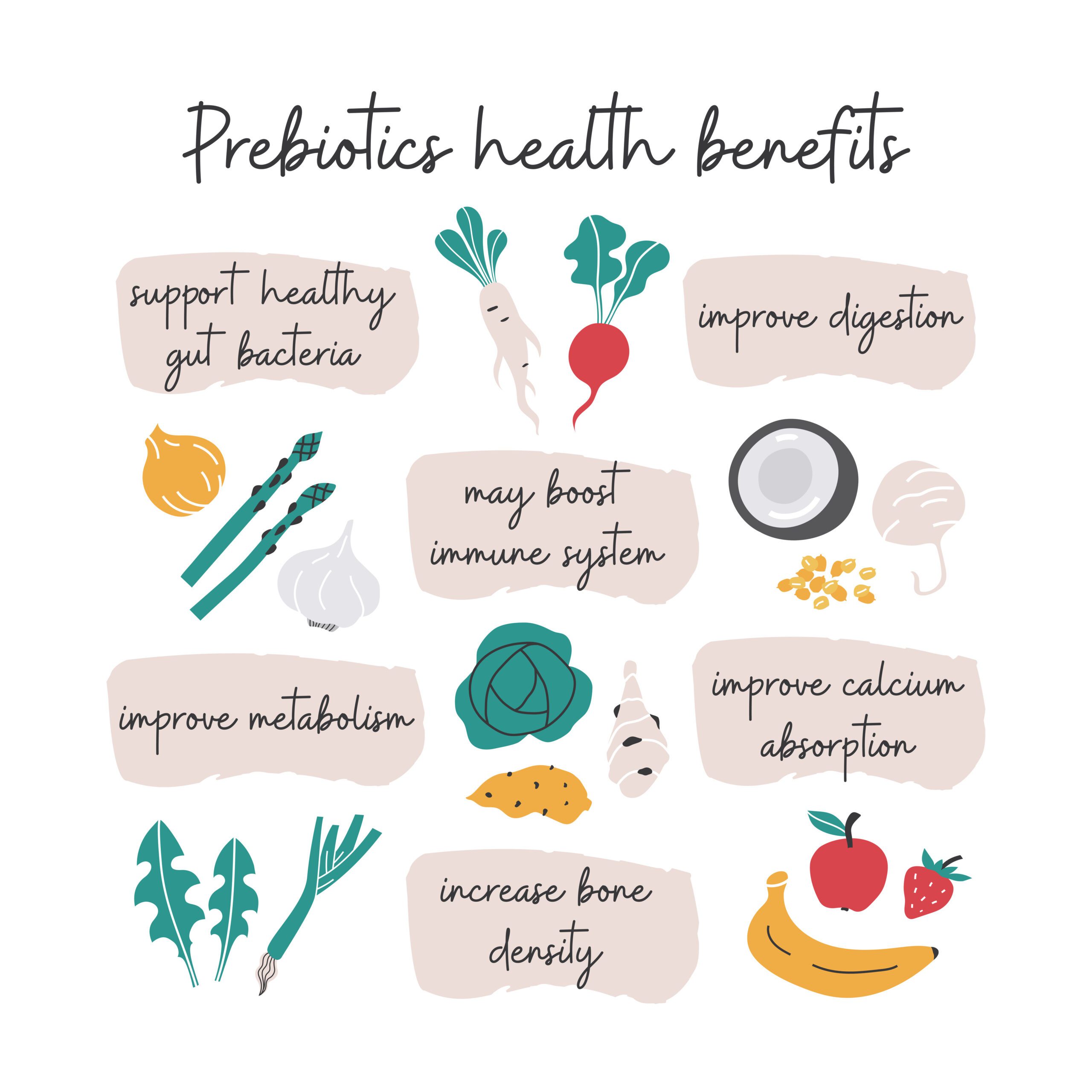
The Power of Prebiotics and Why Probiotics Alone Aren’t Enough
You know about probiotics – the healthy bacteria that can help you maintain good digestive health (and good overall health). But have you heard of prebiotics? Many people haven’t, which is a shame, as they are an essential part of the benefits you get from probiotics; as well as a healthy nutrient in their own right.
Prebiotics Defined
Probiotics are bacteria, right? And bacteria need to “feed” on something to survive and to thrive, correct? Well, that’s where prebiotics come in. Simply put (by the Mayo Clinic), prebiotics are “non-digestible carbohydrates that act as food for probiotics.” When the two combine, they form what’s called a “synbiotic.” Not symbiotic (although that would be somewhat of an accurate description, being that their “relationship” could be termed interdependent). A food, such as kefir or yogurt, can be considered synbiotic because it contains both the live bacteria and the food it needs to live.
Where Can You Find Prebiotics?
Prebiotic compounds are found naturally in whole foods such as bananas, onions, garlic, honey, artichokes and whole grains. They are also sometimes added to foods/beverages, and can be found in nutritional supplements.
What are the Benefits?
Continued scientific research on probiotics shows that they can help ease digestive woes such as bloating, gas, diarrhea, constipation, and irritable bowel syndrome (IBS), as well as help treat certain intestinal infections. But the benefits don’t stop in the digestive system. Probiotics can prevent and treat things like vaginal yeast infections, urinary tract infections, eczema, allergies, colds and flu. Some research even points to the prevention of bladder cancer recurring in individuals who have reached remission.
And since probiotics get their “oomph” with the help of prebiotics, you can see why making sure you’re getting both is nearly essential. Not only that, but prebiotics on their own have been shown to enhance calcium absorption, boost the immune system, and reduce risk factors involved in colorectal diseases.
We spoke with one woman, Jillian, who shares her story of how both probiotics and prebiotics helped her to find relief from years of digestive problems.
Jillian’s Story
I’ve suffered with digestive problems for as long as I can remember. After being diagnosed with an ulcer at the ripe young age of 15, my problems only got worse. I tried everything the doctors suggested, and had every sort of diagnostic test out there – from x-rays to sticking a camera down my esophagus. I was on prescription after prescription (as far back as when Prilosec was not an OTC option), but nothing helped. The symptoms varied from gas and bloating to fatigue; even a sore throat from the acid reflux. It didn’t matter what I ate (or didn’t eat), the pain and discomfort persisted.
Then, about five years ago, a friend of mine told me about probiotics. I wasn’t really sure what they were, but after some investigating, I thought “Why not? It can’t hurt to try.”
After only a couple of months I felt incredible relief. No more gas, no more bloating. No more waking up with that icky taste in the back of my mouth. I did a little more investigating, and added a probiotic formula to my regimen that also contained prebiotics; and I started looking for foods (like the protein bars I eat) that contained prebiotics. The results were even more astounding. I felt increasingly energetic, and more “alive” than I had felt in years. I was able to discontinue the use of my prescription medication, much to my doctor’s amazement. In fact, I can’t believe doctors and healthcare providers don’t advise the use of probiotics and prebiotics – not just for digestive health, but for OVERALL health. If I were you, I’d give them a try.
Fairly convincing, wouldn’t you say? If you’re still not quite sure, remember this: probiotics and prebiotics are natural substances – NOT drugs. And while you should always consult with your healthcare provider before embarking on any new nutritional ventures, you can rest assured that adding both probiotics and prebiotics to your regimen is definitely a step in the right direction to a healthier, happier YOU.

A new study suggests that a widely used sugar substitute found in diet sodas, chewing gum, and low-sugar yogurt may elevate insulin levels. This could increase the long-term risk of heart disease. “Artificial sweeteners have infiltrated nearly all types of food, making it crucial to understand their long-term health effects,” said Yihai Cao, senior author […]

Diet Coke has long been a fan-favorite among soda lovers who want a fizzy, guilt-free alternative to traditional soft drinks. While its zero-calorie, zero-sugar label makes it seem like a healthier option, the reality is far more concerning. Despite its undeniable popularity, Diet Coke’s nutritional profile has raised red flags among health experts for years. […]

New study shows that embracing an anti-inflammatory, plant-forward diet can support cognitive function and help reduce the risk of dementia. What You Eat Shapes Your Brain The food you eat doesn’t just impact your body—it also affects your brain. Research suggests that eating an anti-inflammatory, plant-based diet can help improve memory, focus, and overall brain […]